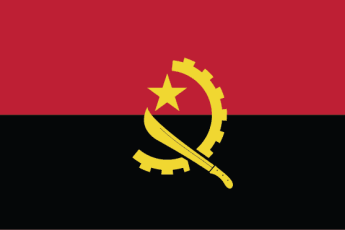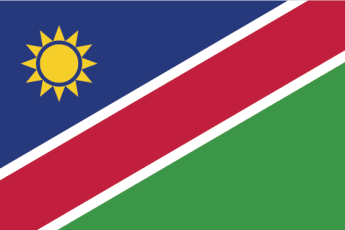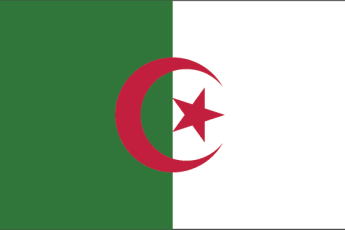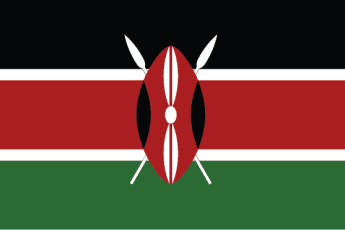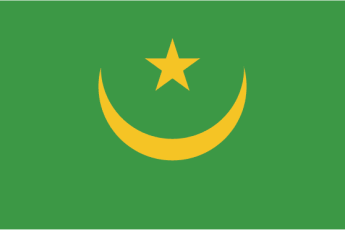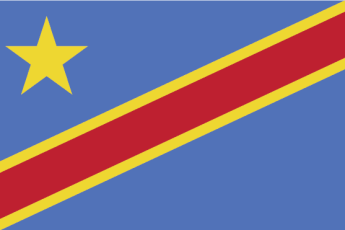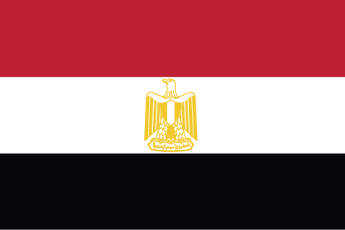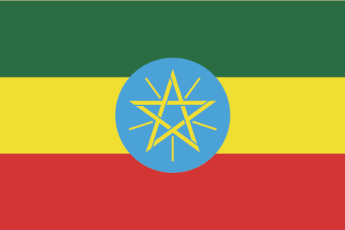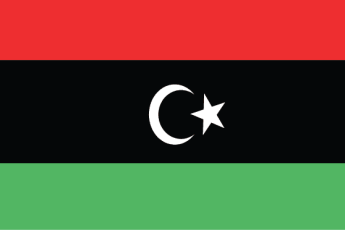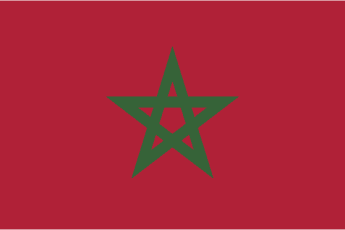Why Men Should Choose Central African Brides
There are many reasons why men should date Central African brides. Here are a few of them: Culture, religion, and dating a Central African bride. This article is not intended to be a comprehensive guide to Central African marriages. However, it can give you some tips and tricks on how to meet your future wife. Before making the big leap, here are some things to keep in mind. Lastly, support your soul desire!
Culture
When you meet a Central African bride, you must understand that her culture is quite different from yours. Though many rural C.A.R. couples have arranged marriages, they are still considered traditional. In most cases, the bride is younger than the groom. In addition, polygamy is still practiced, though it is rare these days. Grooms are expected to provide gifts to the bride’s family. Most women have many children, and children call their uncles “little fathers.”
In addition to greeting the bride’s family with a handshake, the bride’s parents greet her future husband with a warm hug and a question about her sleep. In the same way, newcomers greet the most important person first and then greet everyone in the group. Then, close friends follow the handshake with a snap of fingers. Finally, women have been adopting the practice of kissing each other on both cheeks, as done in France.
Religion
Many men and women are confused by the term “religion” in relation to Central African brides. In fact, religion in Central Africa is a cultural and religious practice. While the practices may vary slightly from one area to the next, the substance remains the same. In traditional African societies, tribes are divided into smaller groups, usually linked by blood or social ties. These groups share a common culture and recognise a leader.
In many cultures in Africa, asking a girl to marry is a common practice. In many African wedding ceremonies, the groom cannot proceed without first asking for her hand in marriage. In Ghana, some people refer to this tradition as “knocking on the door”. The groom and his family visit the bride’s home during a pre-arranged night. In addition to giving her a gift, the groom and bride’s families discuss the prospects of joining their families through marriage.
Costs
The dowry and marriage ceremonies that Central African women experience are often unaffordable. Some Africans opt for a simplified ceremony instead. Some are forced to relocate far from home for employment, and travel back to their communities is unrealistic. Some perform irregular unions, which are far from ideal. This tradition was rooted in a culture where marriage is the foundation of a community. But it also comes with a cost.
The lobola negotiation is usually steered by the bride’s family, which reminds the prospective son-in-law that it cost time and money to raise their daughter. This can make the bride-to-be feel like he has bought his wife. But many couples are reluctant to break the custom. In South Africa, “lobola” is a traditional economic exchange, in which the groom’s family gives a gift to the family of the bride-to-be.
Dating a Central African bride
If you’re considering dating a Central African bride, you should know that women in this part of the world have beautiful skin, and a man’s sexual energy will be immediately felt by a woman’s intense gaze. You’ll also have to deal with her unique culture, which includes strict religious observance and cultural beliefs. Nonetheless, most women are charming and friendly, and you can easily charm her with your own unique talents.
One of the best places to start looking for a woman from Central Africa is the expat community there. This is one of the easiest ways to meet new females interested in romantic affairs. The expat communities in Bimbo and Bangui are great places to make contacts with local females who have a passion for romance. You’ll probably want to start small to make friends with local women, and a few dates may turn into a lifetime.
Dating With Central African Girls
Considering dating with a Central African girl? There are a few things you should know about this continent. The capital, Bangui, has plenty to offer for both men and women. While men will find this country intimidating, women are extremely friendly and eager to meet foreign men. Central African girls want to meet men who are genuinely interested in making a sexual and emotional connection. To begin, try meeting girls in Bangui by car.
Culture
If you’ve ever gone on a date with a Central African girl, you know how difficult it is to navigate her cultural differences. Dating an African girl can be difficult enough, but when you add to that the conflict in the region, the whole experience can feel almost extraterrestrial. The people of Central Africa are incredibly family-oriented, and they’re accustomed to dressing modestly. Despite being a majority Muslim country, women are still generally confined to domestic duties and household chores. The country’s popular instruments include the sanza, a traditional instrument. Even Pygmies have their own folk traditions.
While the majority of African men outnumber women, the numbers are much different. In Rwanda, for example, there are less women than men. In Morocco, there is only one female minister in the cabinet. These cultural differences may be discussed, but they are outside of the control of your African partner. It’s best to be respectful of her cultural traditions and avoid any sexy gestures until you feel comfortable with her.
Religions
The traditional African religion still plays a major role in the daily lives of Central African girls. Though the practices and beliefs vary from one tribe to the next, the substance remains the same throughout the continent. A tribe is a social division within a traditional society, connected through blood, religion, or social ties. Unlike Christianity, African tribes do not worship the dead directly, and the religious practices of the women are usually unaccompanied by any physical evidence of deity.
Olupona’s work has won her several awards and research fellowships. She was awarded the Reimar Lust Award for International and Cultural Exchange, considered one of the highest honors in academic circles in Germany. The award is a year-long fellowship in which she could study and carry out research in Germany. She is also the author of several books, including an article published in the Journal of Africana Religions. She has written articles on the history and evolution of Africana religions and the role of women in their societies.
Desires for a partner
If you’re looking for a date who’s truly exotic, you’ll love dating an African woman. Not only do they look amazing, but they also have a genuine, authentic appearance. When it comes to their outfits, African girls know how to stand out. From bold and colorful pieces to elaborate, ethno-style jewelry, these women are able to pull off any look. They appreciate anything you do for them, even if it means going to the trouble of getting expensive gifts and designer jewelry.
Depending on the site, you may be able to find women with similar interests and backgrounds. Filtering results by age, ethnicity, and religion can narrow your search to women you’d like to communicate with. Once you’ve found the right woman, you can start a meaningful conversation. If you’re serious about dating a Central African girl, you’ll be able to make her feel special from the beginning.
Interacting with an African single on a dating website
It can be a little daunting to interact with an African single on a dating website. In Africa, families are the building blocks of society, and African singles take this into account when interacting on a dating website. If you happen to meet an African single, they will probably fuss over you and make sure to show you off to their families. This will make you feel like an alien, but it isn’t true.
There are countless African dating websites, so choosing the right one can be tricky, especially if you’re new to online dating. There are also a lot of reviews and helpful recommendations available, so do your research before you select a website. Also, don’t blindly trust other people’s opinions, as some websites buy positive reviews in order to attract people. If you’re serious about finding an African single on an online dating website, be sure to use your instincts and know your own limitations.
Accommodation in the Central African Republic
For tourists looking for affordable accommodations in the Central African Republic, a good option is to book a hotel. Accommodation in the capital Bangui ranges from XAF 120 000 (US$126) per month for a one-bedroom apartment to $52 per night for a hotel. There are also homestays, hostels, and motels, as well as a variety of other accommodations. You should also consider transportation options, as there are few organized routes in the country.
Among the accommodations in the Central African Republic are hotels and lodges. Most of these establishments are located in national parks or forested areas. You can also find cheaper hotels if you book ahead of time. While the cost of lodging in the Central African Republic varies by season, you can typically find a great deal on Mondays or Wednesdays. Regardless of the time of year you visit, it is best to reserve your accommodations at least 90 days before you travel.
Women in Africa Are Not Prohibited From Marrying Before the Age of 18
The country of Central African Republic prohibits women from marrying before the age of 15. Once they have been rejected, the repudiated women have no chance to remarry. Their humiliation and isolation only exacerbate their poverty. To make ends meet, these women can turn to prostitution or even fall into criminal networks. Brothels and other brothels prey on refugee women to be sold as gold. The consequences of this situation are grave.
Education
In the Central African Republic, nearly one in four girls is married before the age of 18. The reasons vary wildly – some are forced into early marriages by their families, while others are tricked by future husbands into doing so. Others are simply desperate for a better life.
In Central African Republic, many women have risen to positions of leadership in government. Ousmane, who worked in the construction industry for six years, now teaches children at home. UNESCO’s Women in Central Africa programme is closely monitoring the situation. Monique Nali, the former head of the ministry of social affairs’ gender promotion program, now heads a non-profit aimed at supporting women who have been abused.
Female genital mutilation
The practice of female genital mutilation is a recurring and widespread tradition in Africa, and has a strong sociocultural inclination. It is a secret practice and under-reported in many countries, but it is widely accepted by all major religions in the region. It is carried out on women of different ages, either individually or in groups. The practice is highly harmful and often discourages women from getting married.
Although the exact mortality rate of girls who are subjected to FGM is unknown, there are significant health and psychological complications for the girls who have undergone the practice. This practice can lead to childbirth complications, infection, scarring, and keloid. The practice is also linked to an increase in obstetric complications, including premature delivery. It is also a significant hindrance to anti-FGM campaigns in many parts of Africa.
Complications from pregnancy and childbirth
In the Central African Republic, nearly half of all girls are married before the age of 18. The reasons for early marriage are varied; some girls are deceived by their future husbands, and some are simply seeking a better life. Abdu had an unsuccessful marriage, resulting in two infant deaths and the subsequent failure of his first marriage. To save his family from further suffering, he remarried at age thirteen to a girl he had met at age twelve. He tried remarrying three times, but each time lost.
In addition to the emotional toll of a difficult pregnancy, a girl’s physical immaturity is another factor. This is exacerbated by the lack of emergency obstetric care. Survivors of such births are often ostracized by their families and communities.
Impacts of forced displacement
The recent civil war in Chad has displaced large numbers of people and left many in exile. This article explores the implications of forced migrations on women’s marriage practices, analyzing data collected in N’Djamena from 1993 to 1994. The results indicate that forced migrations negatively impact marriage prospects and are associated with higher rates of divorce among internally displaced individuals. Aid agencies should consider extending their assistance to these refugees in the future.
This research has shown that forced displacement affects women differently than men and should be reflected in the design of programs and policies. The World Bank and the UK Foreign, Commonwealth and Development Office have funded an extensive research program on gender-related aspects of forced displacement. This work has resulted in a series of papers on the gender-based impacts of forced displacement. These papers have been authored by international and local researchers, guided by the organization’s Senior Advisory Panel.
Central African Wedding Traditions
If you’re getting married in Central Africa, you may be wondering about the many different rituals and ceremonies associated with this traditional wedding. In this article, you’ll learn about the Libation ceremony, Aso Oke fabric, and Aso Ebi, as well as gifts given to the bride’s family, which may be a part of the traditions. And we’ll also take a look at the gifts of appreciation for the families.
Libation ceremony
The libation ceremony is an important part of many African cultures. Many of the African wedding traditions cannot proceed without it. The libation ceremony is performed by an elder, who pours alcohol or holy water on the ground in the four cardinal directions. The elder then recites a prayer to ancestral spirits and calls out the names of recently deceased relatives. The purpose of the libation ceremony is to appease the ancestors and bless the bride and groom.
The libation ceremony is often performed with wine, but this is not required. In some communities, it is not possible to perform the ceremony. The wedding ceremony may also include a henna ceremony. The henna ceremony takes place several days before the wedding. It is customary to offer the libation during this day. The libation ceremony also involves a feast. In many places, guests are invited to taste the four elements and try them on the bride and groom. This libation ceremony signifies a commitment to one another and to work through emotions together.
Aso Oke fabric
Aso Oke is a traditional African wedding cloth made of high-quality aso oke fabric. In Nigeria, a bride wears an ancestral robe with matching aso ebi. It’s common for the newlyweds to wear bright colours, such as red or yellow, and to have their outfits made of the same material as their wedding gowns. In Austria, the bride’s family is said to have sounded gunshots before the wedding to ward off evil spirits.
Traditionally, aso oke fabric is made by hand from pieces of cloth, usually cotton. The style of both women’s and men’s aso oke garments is traditional and timeless. Women’s aso oke outfits usually consist of a wrapper, blouse and shawl. The shawl covers the entire upper body and is tied around the waist. While the fabric used for weddings is traditionally made from raw cotton, there are now ready-made versions available.
Aso Ebi
Aso Ebi, a word derived from Yoruba, is a ceremonial cloth worn by members of the wedding party. Typically made of cotton or polyester, it is an important element of Central African wedding traditions. The aso is a traditional piece of clothing that signifies family bonds. While a typical aso ebi is worn by the bride’s family, the groom’s family also wears aso. The bride’s mother picks the cloth for her daughter, while the groom’s father chooses one for his son. In the Dioula language, the cloth is known as “sanga willi.”
Aso Ebi is a traditional part of Central African wedding traditions and is one of the most beautiful aspects of a traditional Central African wedding. It is also one of the most stressful parts of a traditional wedding, as you’ll have to chase family members for payment, and deliver asoebi to your guests. But the rewards are worth it when you see the beauty of the wedding. There’s no other tradition as moving to the heart of Africa.
Gifts of appreciation for the family of the bride
The groom usually gives gifts to the family of the bride during their engagement, a tradition called “roora” in the Shona language. The gifts are meant to thank the bride’s family for helping raise the girl, including a “mbereko” blanket for the mother to use when carrying the baby. The bride’s parents are also acknowledged with “majasi,” a payment for the wedding clothes they provided. The bride’s siblings receive presents and money.
The kola nut plays an important role in many West African wedding traditions. The kola tree grows in tropical forests, and its nut is a symbol of hospitality, unity, and healing. The nut’s use in weddings in West Africa has led to its inclusion in wedding traditions in other countries. Kola nuts are often given to the bride’s family during the engagement celebrations.
Kitchen party
A Central African wedding tradition includes a kitchen party. Traditionally, the bride organizes a “kitchen shower” before the wedding. In the past, only women attended, but these days both sexes are welcome. At this party, guests give gifts for the bride’s kitchen. The kitchen party is different from a wedding shower in several ways. Traditionally, women throw the party, while men are allowed to attend the men’s party.

